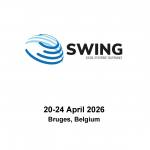Public PhD Defense of Nadia Tjahja, UNU-CRIS PhD Fellow

On Friday, 12 September 2025 at 15.00, the public PhD Defense of Nadia Tjahja on Meaningful Participation in Global and Regional Multistakeholder Institutions: The Case of the Internet Governance Forum will take place at the Vrije Universiteit Brussel, Main Campus Etterbeek, Pleinlaan 2, 1050 Brussel in Building D, D.2.01.
Supervisors: Jamal Shahin, PhD (VUB/BSoG) and Trisha Meyer, PhD (VUB/BSoG)
Please click here to register.

Abstract. This dissertation investigates the effectiveness and inclusivity of stakeholder engagement within the Internet Governance Forum (IGF), a United Nations-mandated multistakeholder platform for policy dialogue on Internet governance. It explores if and how the IGF is designed to facilitate meaningful participation across diverse stakeholder groups, including civil society, government, technical community, academia, private sector, and youth, by developing analytical frameworks based on empirical data and case studies. The central research question: “how can we assess the design of the Internet Governance Forum’s approach to engaging stakeholders in its processes?” is addressed through two subquestions. First, it examines how stakeholders identify themselves and their affiliations within the IGF. Second, it analyses youth as a case study to understand their unique participation dynamics in Internet governance processes.
The dissertation is structured into two major sections, each consisting of two journal articles.
The first section critically evaluates who participates in Internet governance, with a particular emphasis on civil society. Through the development of an IGF participants database (2006–2019), the research uncovers patterns of stakeholder self-identification and representation. Article 1.1 presents a typology of 2,830 civil society organisations categorised by purpose: coordination entities, end user (group) representation, knowledge and capacity builders, and problem-driven advocacy. Article 1.2 extends this analysis by comparing individual self-identification against organisational classification, revealing stakeholder mobility and hybrid identities. Notably, it finds that most IGF attendees are newcomers and that returning participants may shift stakeholder affiliations due to changes in roles or employment, highlighting fluid stakeholder boundaries and evolving identities.
The second section delves into youth participation, applying theoretical frameworks to evaluate their participatory roles. Article 2.1 introduces the “Pyramid of Participation”, a modified version of Arnstein’s Ladder, to map youth activities at YOUthDIG, EuroDIG, and the global IGF. It shows how institutional support and peer-to-peer mechanisms enhance youth inclusion. Article 2.2 develops the concept of “meta-participation,” illustrating how youth actors reshape their engagement by initiating new participatory spaces and leveraging event structures to influence governance processes. The findings affirm that while structural access and visibility are prerequisites, true stakeholder inclusion depends on integrating diverse voices meaningfully into discourse and decision-making. This calls for a reassessment of participation not as a static presence but as a dynamic, purpose-driven contribution. By applying newly developed frameworks such as the Internet Governance Stakeholder Framework and the Pyramid of Participation, the research provides tools for assessing the legitimacy and effectiveness of stakeholder engagement in multistakeholder forums.
Ultimately, this dissertation advocates for a shift in multistakeholder design philosophy: from counting voices to integrating them. It contributes both theoretical and empirical insights into stakeholder dynamics, proposing that only through purposeful engagement and reflexive design can forums like the IGF foster authentic dialogue and inclusive governance.
Upcoming Events
Similar Events
No events found.



